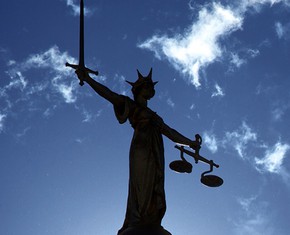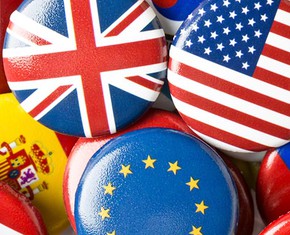The views expressed in our content reflect individual perspectives and do not represent the authoritative views of the Baha'i Faith.
The mass shooting in New Zealand—and all the ones that preceded it—mean to separate us, to make us suspicious of each other, to spark more hatred, to divide us as human beings.
How do we know that? The terrorists tell us. In the so-called “manifesto” he wrote, the New Zealand mass murderer said he killed innocent people to “incite violence, retaliation and further divide.”
The term “terror” comes originally from the Old French word terreur, which means “terror, fear, or dread.” That’s what terrorists do: they try to provoke dread, not only of the future, but between people. They want us to share in their hatred, to become polarized, to fear others, to live in terror of one another. They want us divided, not united.
So how can any sane individual possibly respond to those heinous acts? How can each of us deal with such horrible hatred? What can any one person actually do?
In times like these, when we despair, when we feel helpless and hopeless, when we wonder how anyone can lose their basic humanity so completely, we naturally turn to the beauty, the spirituality and the moral clarity of faith. The prophets and founders of those Faiths all urged us heal our divisions and love one another—to work for unity, oneness and peace:
The Prophets of God should be regarded as physicians whose task is to foster the well-being of the world and its peoples, that, through the spirit of oneness, they may heal the sickness of a divided humanity. – Baha’u’llah, Gleanings from the Writings of Baha’u’llah, p. 79.
… it is evident that the Prophets of God have come to unite the children of men and not to disperse them, to establish the law of love and not enmity. Consequently, we must lay aside all prejudice—whether it be religious, racial, political or patriotic; we must become the cause of the unification of the human race. – Abdu’l-Baha, The Promulgation of Universal Peace, pp. 162-163.
Those instructions from the deep spiritual treasury of the Baha’i teachings give us clear answers to the ugly questions terrorism raises.
In just a few words, these teachings ask us to do three very specific, vital things in response to those who sow hatred and division: to regard all religions as one; to “lay aside all prejudice,” and to personally “become the cause of the unification of the human race.”
First, the Baha’i teachings say, we should view all of the prophets as physicians who bring cures intended to heal the sickness of division. Instead of competing, hostile messages, they all reveal the same essential message—to love one another, to accept the other, to see friends rather than strangers, to worship the same God by accepting all people as one common creation. The Baha’i Faith emphasizes the unity of all Faiths by focusing on their underlying truths instead of their surface-level differences:
All these divisions we see on all sides, all these disputes and opposition, are caused because men cling to ritual and outward observances, and forget the simple, underlying truth. It is the outward practices of religion that are so different, and it is they that cause disputes and enmity—while the reality is always the same, and one. The Reality is the Truth, and truth has no division. – Abdu’l-Baha, Paris Talks, pp. 120-121.
Second, the Baha’i teachings ask us to respond to hatred and division by personally working to defeat and destroy our own prejudices. We all have them. Every person forms their opinions and beliefs based on their own lived experiences, which often lead them to develop fear, dislike and hate. Every human being, then, must commit to consciously work on eradicating their prejudices. That inner spiritual work—one of the central, lifelong tasks of every Baha’i and indeed of all believers from any Faith—calls us all to see the light of the Creator in the eyes of every human being we encounter:
It is not becoming in man to curse another; it is not befitting that man should attribute darkness to another; it is not meet that one human being should consider another human being as bad; nay, rather, all mankind are the servants of one God; God is the Father of all; there is not a single exception to that law. There are no people of Satan; all belong to the Merciful. There is no darkness; all is light. All are the servants of God, and man must love humanity from his heart. – Abdu’l-Baha, The Promulgation of Universal Peace, p. 266.
Admittedly, that’s not an easy task. If we want to erase hatred from the world, though, it seems only fitting and right to first erase it from our own hearts. When asked to summarize the teachings of Baha’u’llah, the prophet and founder of the Baha’i Faith, his son Abdu’l-Baha instructed the Baha’is to:
… lay the basis of love and amity, raise the melody of affinity, and the oneness of the Kingdom of humanity; transmute tyranny and persecution into love and faithfulness efface the traces of bloodshed and carnage; construct the edifice of reconciliation, dispel the darkness of estrangement, diffuse the light of unity; change the poison of animosity into the honey of sympathetic affection; destroy the religious, national and social prejudices from the individuals of humanity; live and act, with and toward each other as though they were from one race, one country, one religion, and one kind. – Abdu’l-Baha, Star of the West, Volume 1, p. 5.
Third, the Baha’i teachings challenge every person to become the cause of the unification of the human race.
That huge undertaking can sometimes seem like a massive mountain to climb. We live in cultures that separate people by race, religion, economic class and nationality. We reside in different neighborhoods, we don’t often socialize together, we wall ourselves off from each other. So how does one person, in a world where the forces of hatred and division seem so pervasive, cause unity for all people?
We only become the cause of unification when we join together with others to make it happen.
So ask yourself: when was the last time I met with a group of others to plan or do something unifying? Do my social networks—the real ones, not the virtual ones—actually contain people from different races, religious backgrounds and classes? When have I gone out of my way to meet people who I don’t have a lot in common with? Have I reached out to someone different lately, just to show them that I want to cross the boundaries that separate us? What actual deeds have I done to cause unity?
Love ye all religions and all races with a love that is true and sincere and show that love through deeds and not through the tongue; for the latter hath no importance, as the majority of men are, in speech, well-wishers, while action is the best. – Abdu’l-Baha, Selections from the Writings of Abdu’l-Baha, p. 69.
If your answers to those questions don’t satisfy you, and don’t meet the criteria of becoming the cause of unification, think about how you can change your life to re-orient yourself toward a community that does support and practice the values of love and unity. The Baha’i community welcomes anyone who would like to join us in becoming the cause of the unification of the human race.
When you take part in that movement—the largest, most global and most ambitious social movement ever imagined and undertaken—you work every moment to defeat the divisive prejudice and hatred that fuels terrorism.
















Comments
Sign in or create an account
Continue with Googleor